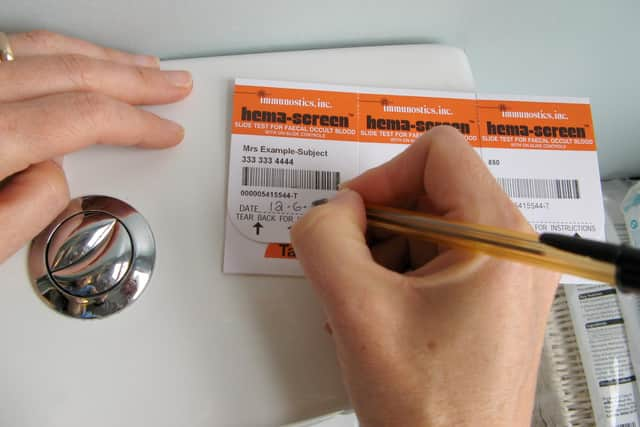New bowel cancer awareness campaign takes people on a trip down Memory Lane
and live on Freeview channel 276
North West Cancer Research’s new nostalgia-driven campaign Remember when… tells people that if they remember owning these items, it could be time to complete their bowel cancer screening kit.
It shines a spotlight on bowel cancer as the North West’s second biggest cause of cancer deaths and urges people to look out for their kit.


Advertisement
Hide AdAdvertisement
Hide AdIn England, everyone aged 54 to 74 who is registered with a GP is sent a faecal immunochemical test (FIT) every two years, to collect a small sample of poo and send to a lab to test for signs of cancer.
The programme is expanding to include people aged 50 to 53.
However, North West data shows around a third of people did not return their kits in 2022/23, with just 66.5 per cent of people aged 60 to 74 sending their tests back.
Across the North West, bowel cancer rates are five per cent higher than the rest of the country.
Experts warn to still look out for key symptoms, including persistent blood in poo; a persistent change in going to the toilet such as having to go more or poo becoming runnier; and lower abdominal pain or discomfort.
Advertisement
Hide AdAdvertisement
Hide AdOverall, rates of cancer in the North West are 25 per cent higher than the rest of England.
CEO Alastair Richards said: “Rates of cancer, including bowel cancer, are higher than the national average. This is for a number of reasons, including population demographics and the deprivation we see in many parts of the region.
“While our research aims to close this inequality gap, there are steps that individuals can take to catch signs of bowel cancer and receive treatment early.
“We know that people may not complete their test because they are perhaps fearful of the results or maybe feel squeamish about doing the test itself, but we want to change that with our campaign.
Advertisement
Hide AdAdvertisement
Hide Ad“By reminding people that they may in fact be old enough to now complete their test, we’re hopeful that we can increase the uptake in home screening across the North West and, ultimately, reduce the number of people being diagnosed.”
